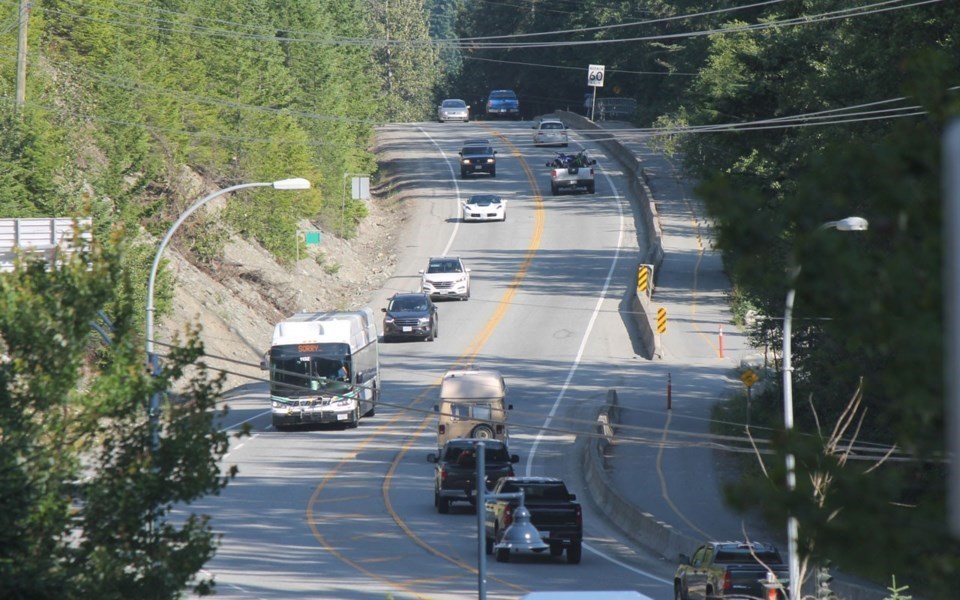This year’s B.C. budget offered a mixed bag as it pertains to Whistler, with increases in funding for tourism, housing, health-care and climate initiatives, but still no money on the way for one of the Sea to Sky’s longest-running provincial asks: regional transit.
Overall, the NDP has committed to a total of $81.2 billion in spending for the 2023-24 fiscal year, up from $79.1 billion in last year’s budget, with a particular emphasis on supporting British Columbians following a year of high inflation and rising costs across the board.
“B.C. is a great place to live, but people are facing real challenges—not only from global inflation and the pandemic, but from ongoing and systemic challenges,” said B.C. finance minister Katrine Conroy in announcing the 2023 budget earlier this month. “This year’s budget helps protect people who can’t afford today’s high prices and takes action on the issues people care about, like finding affordable housing and accessing health care.”
With historic investments in housing and active transportation, and pointed emphasis on climate action, emergency response and improving access to health-care, Whistler Mayor Jack Crompton said he was “struck by how closely aligned the provincial budget is with the RMOW’s priorities. I don’t say that every year.”
Budget 2023 saw a slight increase in tourism funding compared to last year, to $182 million, a 5.2-per-cent hike. That’s nearly double the 2.65-per-cent bump in spending across all provincial ministries, programs and agencies this fiscal year, which begins April 1.
After several lean pandemic years, Victoria has set an ambitious target of raising tourism industry revenues in the province by 60 per cent this year, when compared to the $13.46 billion generated in 2021-22.
“Industry revenue is expected to increase as international travel builds toward a return to 2019 levels, but risks include the potential impact of worldwide inflation and ongoing COVID-19 cases as part of travel activity,” the budget read.
While the number of tourism business in B.C. has remained relatively stable since 2019, overnight visitation in 2022 is estimated to be about 80 per cent of 2019 totals.
Even with the industry’s continued recovery, the province warns that tourism is “particularly at risk this year due to world-wide belt-tightening in the face of the rising cost of living,” along with the added challenges around labour shortages, housing affordability and availability hindering tourism operators’ ability to attract and retain staff, and climate-related emergencies “such as fires, floods, and drought” that have “created havoc for an industry that relies on planning weeks or months in advance of travel.”
As a pandemic recovery contingency, the budget allocates $20 million towards a “tourism initiative envelope” intended to support the sector’s ongoing economic recovery efforts for the sector, based on ministry priorities. Last year’s budget dedicated $25 million to this effort.
On the transit front, the province doubled its capital investment for BC Transit, from $110 million to $223 million*, but there was little in the way of funding to expand the Crown corporation’s service and no spending dedicated to intra-regional transit, which comes as a sore spot to Sea to Sky officials who have lobbied for such a service connecting Mount Currie to the corridor and beyond.
Given his enthusiasm for housing investments included in the provincial budget (with $4.2 billion earmarked for housing initiatives through 2025), “it feels strange to point to what’s not there, but the lack of investment in regional transit is disappointing,” said Crompton. “That said, we remain in conversation with the province about this and we are getting indications that there’s interest in trying to make something work. They recognize that there’s a problem, which is good.”
Pick up Friday's Pique—and check back with piquenewsmagazine.com—for more on the provincial budget's impacts in Whistler.
*An earlier version of this article mistated the amount of capital investment funding in Budget 2023 for BC Transit.




